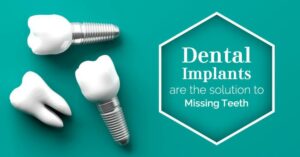Are Dental Implants in Turkey Painful?
Are Dental Implants in Turkey Painful?
If you’re considering dental implants in Turkey, you may be wondering about the pain and discomfort involved.
We understand that pain is a concern for many people when it comes to dental procedures, but rest assured that dental implants in Turkey are typically pain-free. Our experienced and skilled team uses the latest technology and techniques to minimize any discomfort during and after the procedure.
Imagine having a beautiful, healthy smile without the inconvenience and discomfort of dentures or missing teeth. With dental implants in Turkey, you can have the smile you’ve always wanted without the pain and hassle of traditional dental procedures.
Book your online appointment today and take the first step towards a pain-free, confident smile with dental implants in Turkey.
If you’re thinking about getting dental implants in Turkey, you may have concerns about potential discomfort during the procedure. Dental implants are a viable solution for tooth loss, although it’s common to experience some apprehension regarding the procedure.
The discomfort from dental implants is generally low and shouldn’t cause excessive concern. This article will provide information on dental implants, including their purpose, the process of getting them, and potential discomfort associated with receiving dental implants in Turkey.
Table of Contents
What Are Dental Implants and Why Are They Used?
Dental implants serve as prosthetic tooth roots to provide support for artificial teeth and dental bridges. The implants are composed of titanium and are inserted into the jawbone through surgery.
Dental implants serve the purpose of replacing teeth that are missing or providing denture support. Dental implants are a commonly used and efficient method for individuals who have experienced tooth loss as a result of injury, decay, or other factors.
The Procedure Involved in Getting Dental Implants
The dental implant procedure is generally conducted through multiple stages. The initial step consists of meeting with a specialist in dental implants for a consultation. The dentist will assess your teeth, gums, and jawbone to determine if dental implants are a suitable solution during the consultation.
The procedure, its associated risks, and the anticipated outcomes will be thoroughly discussed.
After making the decision to proceed, the next step is the surgical procedure. As part of the surgical procedure, the dentist will make a minor cut in your gums and create an opening in your jawbone using a drill. Following the preparation of the hole, the implant will be inserted and the gums will be sutured.
Local anesthesia will be administered during the procedure to reduce discomfort.
Following the surgical procedure, a waiting period is required for the implant to properly fuse with the jawbone. The process can last for multiple months and a temporary tooth or bridge will be provided to wear during this period. The concluding step in the implant process is connecting the artificial tooth or bridge to the fused jawbone.
The common methods for doing this are by using a screw or cement.
Are Dental Implants in Turkey Painful?

When considering the level of pain and its impact on daily life, it can be helpful to compare different types of discomfort. In the following table, we provide a comparison between dental implant surgery, menstrual cramps, muscle aches, and headaches. Each category is evaluated based on factors such as the level of pain, duration, impact on daily life, manageability, treatment options, recovery time, long-term effects, and overall discomfort. Please note that pain perception may vary from person to person, and the ratings provided are for general comparison purposes.
| Dental Implant Surgery | Menstrual Cramps | Muscle Aches | Headaches | |
|---|---|---|---|---|
| Level of Pain | 3 | 5 | 6 | 7 |
| Duration | Short-term | Varies (hours to days) | Varies (hours to days) | Varies (hours to days) |
| Impact on Daily Life | Moderate | Moderate | Moderate | Moderate |
| Manageability | 8 | 6 | 7 | 6 |
| Treatment Options | Medications | Medications, heating pads, lifestyle changes | Rest, stretching, hot/cold therapy | Medications, rest, lifestyle changes |
| Recovery Time | Days to weeks | Varies (hours to days) | Varies (days to weeks) | Varies (hours to days) |
| Long-term Effects | Positive (restored tooth) | None | None | None |
| Overall Discomfort | 4 | 6 | 7 | 7 |
Level of Pain During Dental Implant Surgery
Dental implant surgery is generally associated with minimal pain and discomfort. Thanks to the administration of local anesthesia, patients typically experience little to no pain during the procedure. The area around the implant site is numbed, ensuring a pain-free experience. Additionally, sedation techniques can be employed to induce a relaxed state, further reducing any potential discomfort. These measures contribute to a smooth and comfortable dental implant surgery experience.
Local Anesthesia and Numbing Agents
- Proper administration of local anesthesia ensures a pain-free experience during dental implant surgery.
- Numbing agents are used to minimize discomfort, providing a comfortable environment for the patient.
Sedation and Relaxation Techniques
- Sedation options such as conscious sedation or IV sedation can be used to induce a relaxed state during the procedure.
- Relaxation techniques, such as deep breathing exercises or music therapy, can help alleviate anxiety and reduce any perceived pain.
Factors that Make Dental Implant Surgery Painless
Precision planning and technique play a crucial role in making dental implant surgery virtually painless. Dentists carefully plan the procedure, taking into account factors such as the location and condition of the jawbone, ensuring minimal trauma during implant placement. Advanced surgical techniques, such as guided implant surgery or computer-assisted navigation, enhance precision and reduce discomfort. Moreover, the use of state-of-the-art equipment and technology, such as 3D imaging and laser technology, allows for precise and minimally invasive procedures, resulting in a painless dental implant surgery experience.
Precision Planning and Technique
- Dental implant surgery is meticulously planned and executed, ensuring minimal trauma to the surrounding tissues and nerves.
- Advanced surgical techniques, such as guided implant surgery or computer-assisted navigation, enhance accuracy and reduce discomfort.
State-of-the-Art Equipment and Technology
- The use of modern equipment and technology, such as 3D imaging, digital scanning, and laser technology, allows for precise and minimally invasive procedures.
- Advanced tools and instruments enable efficient placement of implants, minimizing any potential pain or discomfort.
Dental Implant Surgery vs. Other Surgeries
When compared to tooth extraction, dental implant surgery is generally considered less painful. While tooth extraction involves the removal of a tooth from the socket, dental implant surgery focuses on placing the implant in the jawbone. The targeted nature of dental implant surgery and the use of local anesthesia contribute to a more comfortable experience. Furthermore, in comparison to major surgeries like open-heart surgery or joint replacement, dental implant surgery is less invasive and typically involves smaller incisions. This leads to reduced trauma, a quicker recovery period, and a generally less painful experience.
Comparison with Tooth Extraction
- Dental implant surgery is often less painful than tooth extraction as the implant is placed in the jawbone, avoiding extraction of a tooth from the socket.
- The use of local anesthesia and advanced techniques contributes to a smoother and more comfortable experience.
Comparison with Major Surgeries
- Dental implant surgery is generally considered less invasive and painful compared to major surgeries like open-heart surgery or joint replacement.
- The targeted nature of dental implant surgery and the smaller incisions result in less trauma and a quicker recovery.
Everyday Pains vs. Dental Implant Surgery
Dental implant surgery aims to alleviate everyday dental pains and discomfort. For example, a toothache can cause severe pain, disrupting daily activities and sleep. By replacing a damaged tooth with a dental implant, patients can find relief from persistent toothaches. Similarly, chronic joint pain, such as temporomandibular joint (TMJ) disorder, can cause ongoing discomfort and limited jaw movement. Dental implant surgery does not exacerbate this pain and, in fact, can improve jaw function and alleviate related discomfort. Overall, dental implant surgery is focused on eliminating existing pains and enhancing the overall dental well-being of patients.
Example: Toothache
- Toothaches can cause severe pain, affecting daily activities and sleep. Dental implant surgery aims to eliminate such pain and restore proper dental function.
- By replacing a damaged tooth with an implant, patients can find relief from persistent toothache.
Example: Chronic Joint Pain
- Chronic joint pain, such as temporomandibular joint (TMJ) disorder, can cause ongoing discomfort and limited jaw movement. Dental implant surgery does not exacerbate this pain and can even improve jaw function.
Please note that while dental implant surgery is typically well-tolerated and considered minimally painful, individual experiences may vary. It’s important to consult with a qualified dental professional to discuss any specific concerns or considerations related to pain management during the procedure.
Conclusion

If you’re considering dental implants in Turkey but worried about the pain, don’t be. While any surgical procedure can cause discomfort, the pain associated with dental implants is minimal.
Dental implants are a safe and effective way to replace missing teeth, and they can greatly improve your quality of life. So don’t let fear hold you back from getting the smile you’ve always wanted.
FAQs
How long does the dental implant procedure take? The dental implant procedure typically takes 3 to 6 month to complete, while the surgery itself take a few hours.
Are dental implants safe? Yes, dental implants are a safe and effective way to replace missing teeth. They have been used for decades with a high success rate.
How long do dental implants last? Dental implants can last for decades with proper care and maintenance.
How much do dental implants cost in Turkey? The cost of dental implants in Turkey varies depending on the number of implants needed and the complexity of the procedure.
Is it worth it to get dental implants in Turkey? Yes, dental implants in Turkey can be a cost-effective and high-quality solution for those in need of dental implants.
Will I be able to eat normally after getting dental implants? Yes, dental implants are designed to function just like natural teeth, so you should be able to eat and chew normally once they have fully healed.
What should I expect during the recovery period? During the recovery period, you may experience some swelling, bruising, and discomfort. You will be given pain medication to manage any pain, and your dentist will provide you with detailed instructions on how to care for your implants during the healing process.
Are there any risks associated with dental implants? As with any surgical procedure, there are some risks associated with dental implants. These can include infection, implant failure, and nerve damage. However, these risks are rare and can be minimized by choosing an experienced and qualified dental implant specialist.
How do I know if dental implants are right for me? If you have missing teeth or are in need of support for dentures, dental implants may be a good option for you. It’s important to consult with a dental implant specialist to determine if you are a good candidate for the procedure.
In conclusion, if you’re considering dental implants in Turkey, don’t let fear of pain hold you back. The pain associated with the procedure is minimal, and the benefits of dental implants far outweigh any temporary discomfort.
With proper care and maintenance, dental implants can provide a long-lasting and natural-looking solution for those in need of tooth replacement. So take the first step towards a healthier, happier smile and consult with a dental implant specialist today.




